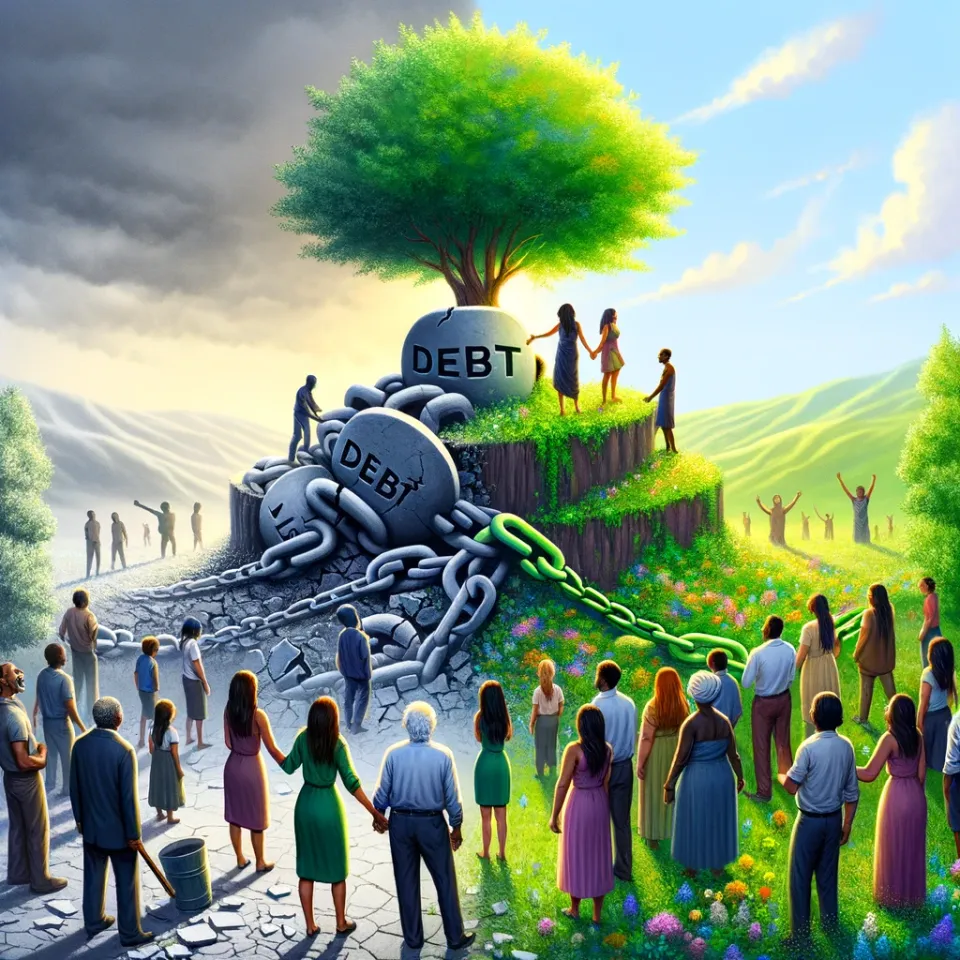Deuteronomy 15 - Bless the Poor

Although we are not explicitly bound by this identical law at this current moment in time, we should be often remembering the reason that God wanted this for His people. It was to protect the poor and the needy from being exploited by predatory debts. This restriction was also placed in addition to the banning of usury as well which just goes to show how seriously we should take this topic especially with where our current economic system stands. God clearly thought that His people would be able to exploit each other without interest on loans and thought it important to emphasize that loans are not to exceed a lifespan of seven years.
God blesses the nations that look out for the needy and makes sure to take care that nobody is bound to life enslaving poverty and starvation so long as His people abide by these teachings to look after the ones who are in need. If the rich were able to abuse loans to this degree, they would be able to tyrannize the poor. Compare this standard to the standard that most western nations are held to today and look at where it has gotten us. We have a lot to learn from this law and we should be looking to emulate this better to the glory of God and His people.
An easy way to read this is that all debts are cancelled entirely after every seven years, but it is good to remember the rest of the law here. It removes the enslavement and lawful requirement to timely pay for the debt, not remove the person's obligation to repay what is owed entirely. Clearly this is designed for a people that all hold God in high regard and respect each other enough to do what is right. It is a glaring reflection of God's mercy to us and how we should show this mercy to those in our lives. Including those who owe us for things we have lent them. I love the way that Calvin comments on the promises of God as a result of abiding by this law:
For the poor shall never cease out of the land. The notion (147) of those is far fetched who suppose that there would be always poor men among them, because they would not keep the law, and consequently the land would be barren on account of their unrighteousness. I admit that this is true; but God does not here ascribe it to their sins that there would always be some beggars among them, but only reminds them that there would never be wanting matter for their generosity, because He would prove what was in their hearts by setting the poor before them. For, (as I have observed above,) this is why the rich and poor meet together, and the Lord is maker of them all; because otherwise the duties of charity would not be observed unless they put them into exercise by assisting each other. Wherefore God, to stir up the inactivity of the rich, declares that lie prescribes nothing but what continual necessity will require.
It's not as if there will never be someone in need if the population of a nation is loving their neighbors in this way, but the dynamic between rich and poor will be completely different altogether. The poor won't be entitled and the rich won't be abusive and greedy if their hearts are in this place.
To follow up on the application that this is designed to only work with a nation of those that are subject to God and love God's law is the exception for foreigners. Those who are not explicit citizens of a nation of God's people are not expected to be able to utilize this freedom with good conscience. However, this is not in any way contradictory of the command to love the sojourner or guest in our nations. We still are not to abuse and exploit them using debt by any means. God is just clear to mention that citizens and those with a homeland tie to the neighbors they are directly living with on a regular basis are more likely to love and respect the freedom they are given than someone who may not even love God seeing this freedom from the outside and only entering as a guest to participate in the merciful law out of exploitation rather than love. It is a natural tendency of humans to do this which is why having zero borders between cultures and ethnicity leads to the issues we are currently seeing within our godless western nations in our abandonment of these principles to begin with. Let us model this behavior between each other and advocate for the nations to follow this example. The second part of the Great Commission is to not only evangelize to further the growth of God's Kingdom, but to teach the nations to obey what God has commanded them. The best way to do this I think is to model it for others and advocate for its implementation into God-fearing nations, using our example of loving each other as the light to others for the love God has for them.